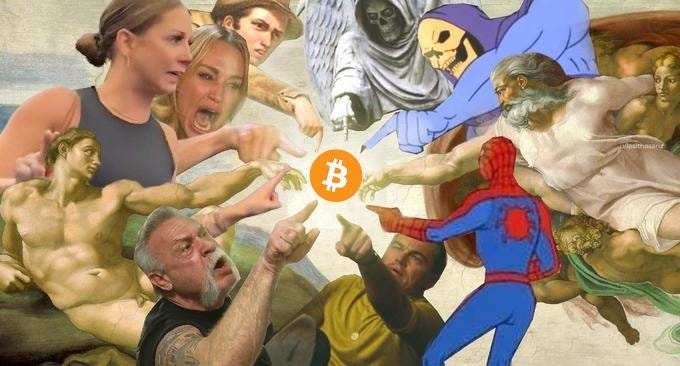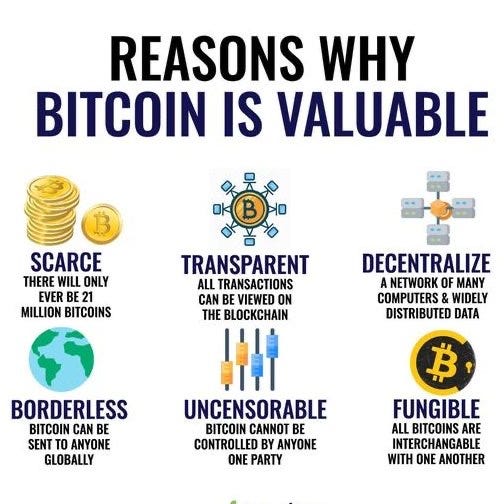Introduction
Having delved into Bitcoin's history and technology, we now face a fascinating question: What exactly is Bitcoin? This seemingly simple query reveals the depth of complexity and debate surrounding Bitcoin's identity. As we explore the various definitions and analogies used to describe Bitcoin, we uncover not only its multifaceted nature but also the broader implications of its role in society.
The Challenge of Definition
Bitcoin defies easy categorization. To some, it is 'digital gold,' valued for its scarcity and durability as a store of value, much like traditional gold but in digital form. This comparison emphasizes Bitcoin’s role as a hedge against inflation and economic uncertainty, echoing sentiments from Saifdean Ammous' "The Bitcoin Standard," which posits Bitcoin as a new form of sound money.
Currency or Not?
Conversely, others view Bitcoin as a currency, focusing on its potential to facilitate transactions and serve as a medium of exchange. This perspective highlights Bitcoin’s utility in everyday transactions, despite challenges such as volatility and acceptance. The debate extends to whether Bitcoin can fulfill all the functions of money: as a medium of exchange, a unit of account, and a store of value
.
Bitcoin as a Financial and Social Instrument
Further complicating its definition, Bitcoin is seen as a revolutionary financial instrument capable of empowering individuals by providing financial services outside of traditional banking systems. This aspect is particularly appealing in regions where access to banking is limited or where currency instability is prevalent.
Regulatory Perspectives and Societal Impact
From a regulatory standpoint, Bitcoin's classification impacts how it is treated under the law, affecting everything from taxation to its use in formal economic systems. Each definition carries significant implications for users, policymakers, and the future of finance. More on taxation of Bitcoin here:
The Taxation of Bitcoin in the United States and Beyond
Introduction As Bitcoin continues to gain popularity as an alternative form of investment and payment, understanding its taxation becomes increasingly important. In the United States, the Internal Revenue Service (IRS) has established specific guidelines for the taxation of Bitcoin. This post will provide a detailed examination of the current tax treatme…
The Base Layer of a New Financial System
The Bitcoin network, with its high degree of security and an extremely hard money at its core, can serve as the base layer of an entirely new financial system. Much like the internet was built in layers, this Bitcoin financial system can be built in layers, starting with the base layer and then adding other layers such as the Lightning Network for payments or other layers supporting smart contracts such as BitVM. For a deeper dive into these topics, check out my past posts here:
A Comparative Analysis of Internet and Bitcoin
Introduction: The Internet and Bitcoin are two transformative technologies that have reshaped the way we communicate, transact, and interact in the digital world. Both systems are structured in layers, each serving a specific function, yet they differ significantly in terms of ownership and decentralization. This post explores the layers of the Internet…
A Simple Explanation of the BitVM Proposal
Summary The BitVM proposal, titled "BitVM: Compute Anything on Bitcoin," introduces a way to express complex, Turing-complete Bitcoin contracts without changing the Bitcoin network's consensus rules. Instead of executing computations on the Bitcoin network, this approach focuses on verifying computations, similar to optimistic rollups. This post includes…
Conclusion
Bitcoin is more than just digital gold or a simple currency—it is a complex amalgamation of technology, economics, and philosophy. Its multifaceted nature invites ongoing debate and analysis, making it one of the most intriguing innovations of our time.
Looking Ahead
In our final post in this series, we will assess the impact Bitcoin has had on the world and speculate on what the future might hold for this groundbreaking technology. As Bitcoin continues to evolve, its influence on global finance, individual sovereignty, and societal structures will undoubtedly be profound and far-reaching.
Not financial or legal advice, for entertainment only, do your own homework. I hope you find this post useful as you chart your personal financial course and Build a Bitcoin Fortress in 2024.
Thanks for following my work. Always remember: freedom, health and positivity!
Please also check out my Bitcoin Fortress Podcast on all your favorite streaming platforms. I do a weekly Top Bitcoin News update every week on Sunday, focused on current items of interest to the Bitcoin community. Please check it out if you haven’t already. Also now on Fountain, where you can earn Bitcoin just for listening to your favorite podcasts.
Follow me on Nostr:
npub122fpu8lwu2eu2zfmrymcfed9tfgeray5quj78jm6zavj78phnqdsu3v4h5
If you’re looking for more great Bitcoin signal, check out friend of the show Pleb Underground here.
Lightning tips appreciated here.













Good overview on Bitcoin here